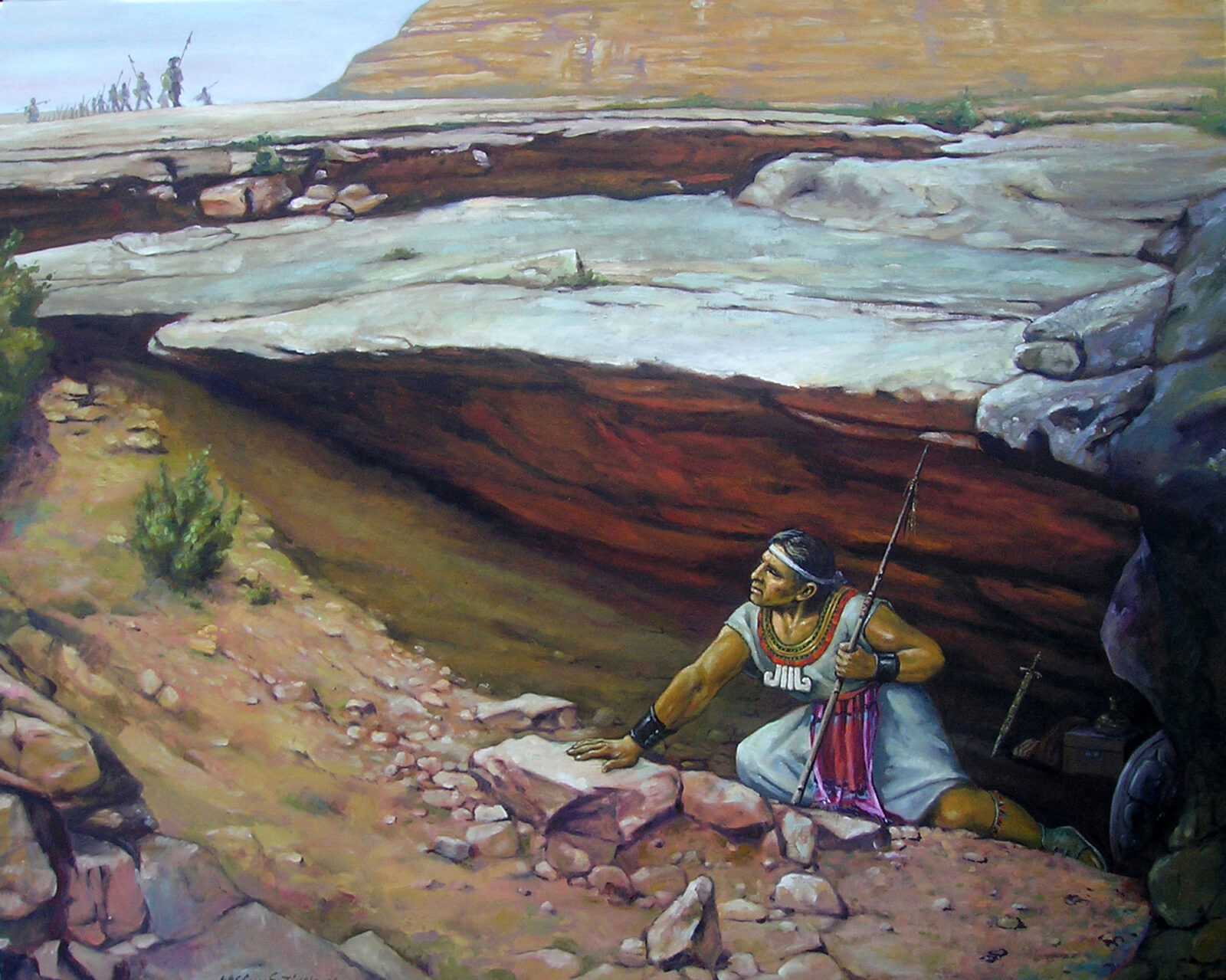To accompany your Come Follow Me study for the week of December 2-8
In addition to reading Moroni 1-6 this week, you will enjoy watching the following related videos:
Come Follow Me (December 2 – December 8): Moroni 1-6: Nuts and Bolts: https://www.youtube.com/watch?v=JS6v9ui00Iw [Video couldn’t be embedded for some reason.]
You will also enjoy the related material in the Institute of Religion Book of Mormon Student Manual at
If you would like a Kahoot game related to this material which you could use for personal study or use with your family or your class, click here: https://create.kahoot.it/share/moroni-1-6/ecd49861-4f92-4618-8eab-abdf658cd5d6. To use it with a group, after clicking on this link, you will need to log into Kahoot, creating a free account if you have not done so previously, then click on the blue “Host Live” button or the gray “Assign” button, depending on how you wish to use the Kahoot. Some of the Kahoot questions may presuppose that the player has read through the suggested answers to the following Points to Ponder and at least has browsed the Institute student manual as well.
Points to Ponder in Moroni 1-6
1. For at least how many years after the last great battle of the Nephites did Moroni live? What do you suppose he did all of those years?
2. Can you enjoy being alone for extended periods of time? Why or why not? What could have made Moroni’s lonely years less oppressive to him than they might have been to someone else?
3. Why was Moroni so interested in his “brethren, the Lamanites” (1:4) when they hated him enough to kill him, if they had had the chance? (1:2)

4. What do you suppose could be the reason Moroni spent the first six chapters of his book talking about the Nephite church and church organization and ordinances, when so far as we can determine that organization had not existed and none of the ordinances had been performed for several decades?
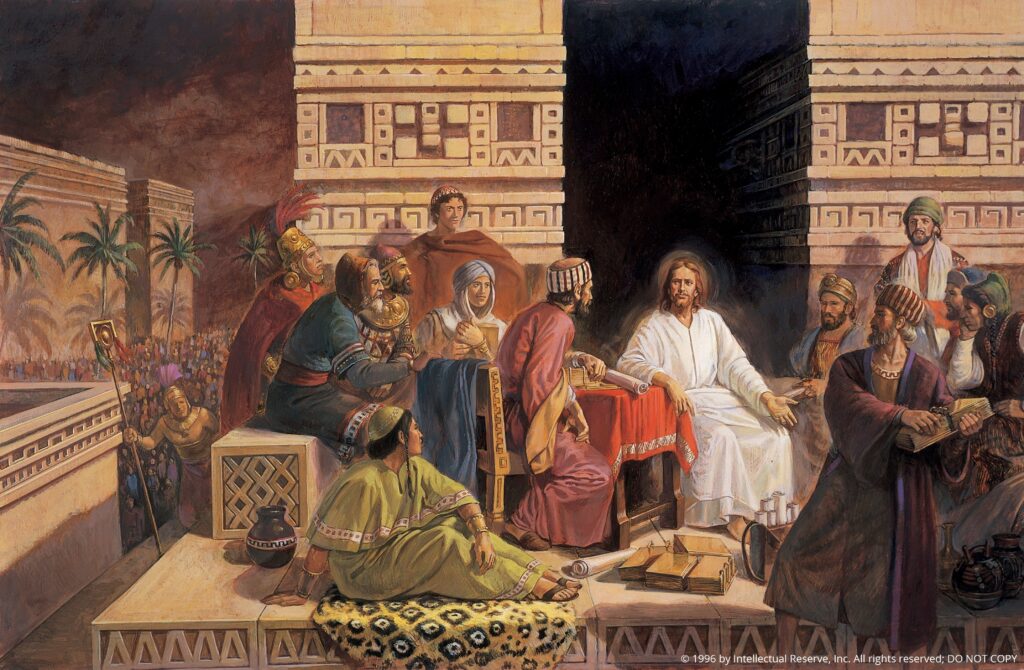
5. Moroni 2 and Moroni 3 suggest that one must pray and have the Holy Ghost in addition to the priesthood in order to confirm or ordain others. What difference would it make if such ordinances were performed by uninspired (as opposed to unauthorized) men?
6. Could you ordain someone to the priesthood today using the words of 3:3? Why didn’t they mention the authority by which they acted, and why didn’t they confer the priesthood on the candidate before ordaining him to a specific office therein?
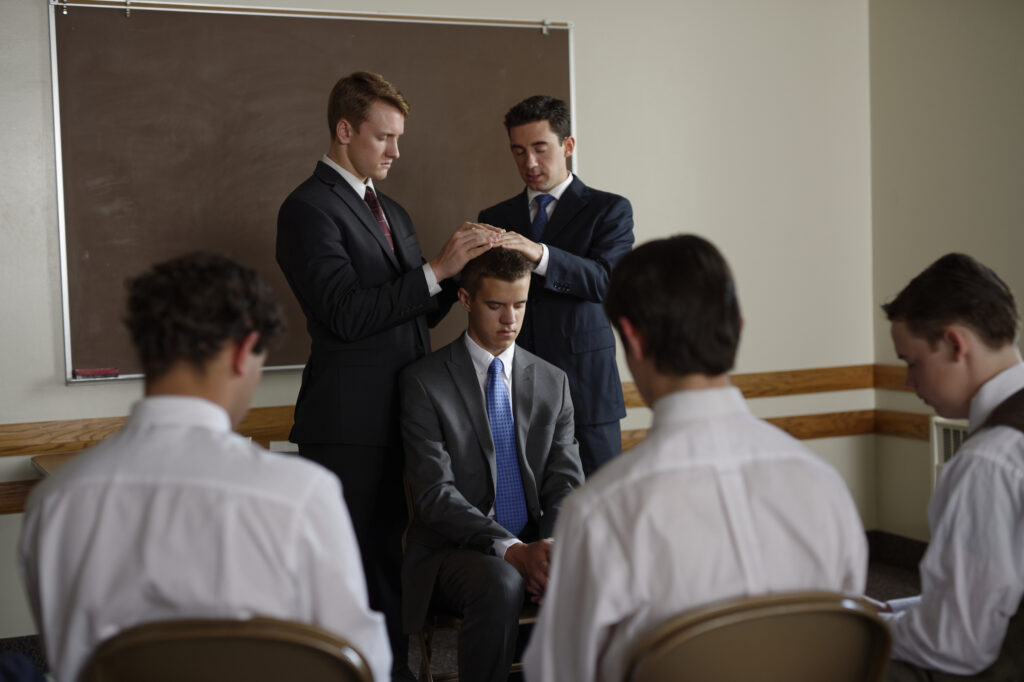
7. Why is it as important for the women and girls of the Church to memorize the sacrament prayers as for the men and boys to do so?
8. What new ideas have you had since we last encountered this subject concerning how to make the sacrament prayers and the sacrament service meaningful each Sunday in spite of their being a repetition of what you have experienced hundreds of times before?
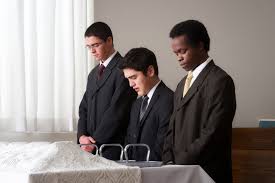
9. What do you consider the most important idea in Moroni 6:1-3 concerning baptism?

10. What similarities do you see between the practices of the church as Moroni knew it and those of our church today? What do you gather were the most obvious differences?
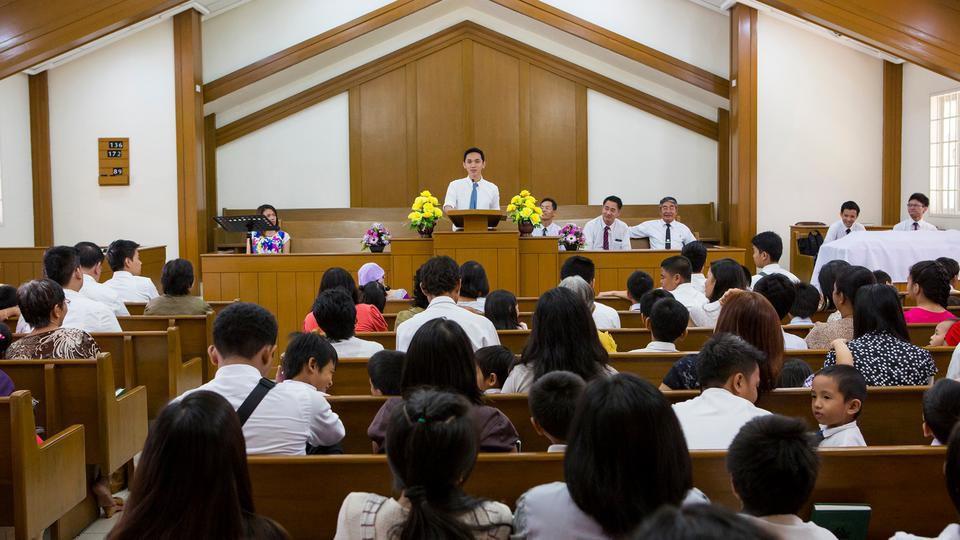
11. Why are Latter-day Saints so much more committed to keeping Church records and submitting reports than other denominations? Do you think we need all of the records and reports? Which would you eliminate, if any? Are there others you would like to see added?
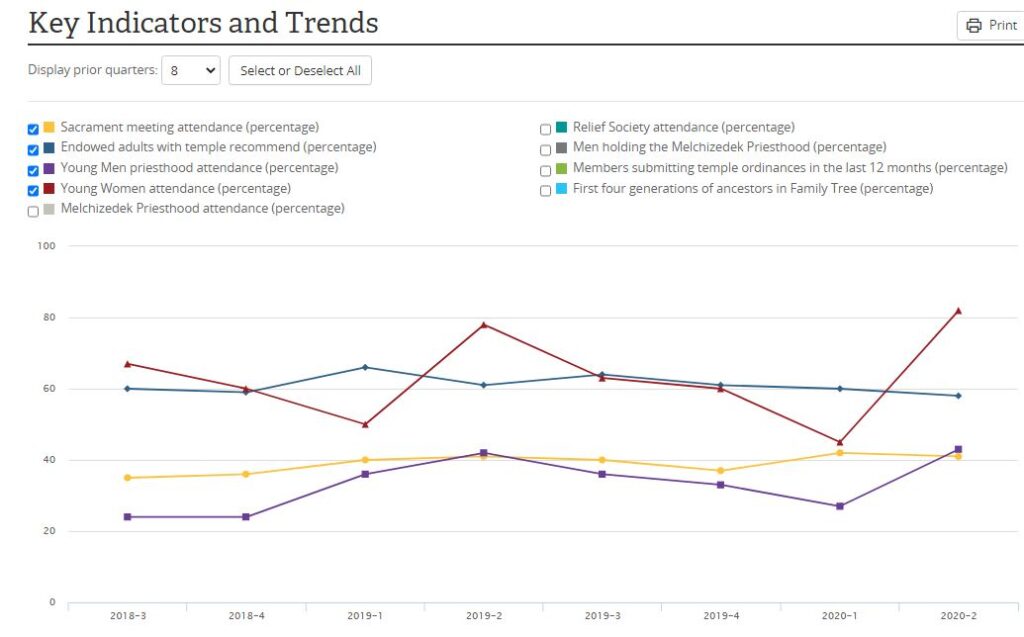
12. What would you say to those who believe the gospel to be true, and who even acknowledge the importance of baptism and other ordinances, but who want no on-going involvement with the Church as an institution on grounds that they can accomplish more by reading the scriptures and worshiping the Lord in their own homes or surrounded by nature? What if sacrament meetings in your ward are so boring and noisy, the people so unfriendly, and the time and location of meetings so inconvenient that you lose more spirituality than you gain by attending?

13. Nephite meetings in 6:9 sound rather unstructured. Why don’t we take that approach today?
14. Why was singing hymns a part of Nephite worship services? (6:9)
Possible Answers to Points to Ponder in Moroni 1-6
1. For at least how many years after the last great battle of the Nephites did Moroni live? What do you suppose he did all of those years?
He lived for at least 36 more years. It was no doubt a lonely existence as he had no friends or family with whom he could associate, and the only other human beings on the continent were intent on killing him. He probably prayed, meditated, read scriptures, hunted, and traveled. Brigham Young said he dedicated the site for the Manti Temple. Perhaps as a mortal he also made it to New York to bury the plates which Joseph Smith would later find. If not, he could have done it as a spirit or resurrected being. During this time he also wrote the Book of Moroni, the last two chapters of Mormon, and the Book of Ether

2. Can you enjoy being alone for extended periods of time? Why or why not? What could have made Moroni’s lonely years less oppressive to him than they might have been to someone else?
Your choice. Moroni no doubt had ongoing communication with his Father in Heaven and probably with the Three Nephites, which would have helped.
3. Why was Moroni so interested in his “brethren, the Lamanites” (1:4) when they hated him enough to kill him, if they had had the chance? (1:2)
Moroni clearly possessed “charity,” the “pure love of Christ,” which enables one to love the otherwise unlovable.
4. What do you suppose could be the reason Moroni spent the first six chapters of his book talking about the Nephite church and church organization and ordinances, when so far as we can determine that organization had not existed and none of the ordinances had been performed for several decades?
Perhaps he now treasured in a new light features of the organized church that he had once taken for granted but had now missed for many years.
5. Moroni 2 and Moroni 3 suggest that one must pray and have the Holy Ghost in addition to the priesthood in order to confirm or ordain others. What difference would it make if such ordinances were performed by uninspired (as opposed to unauthorized) men?
The Holy Ghost can help the officiator know what additional words of blessing or counsel to convey and would help the recipient feel the power of the ordinance more strongly, but an uninspired (as opposed to unauthorized) ordination would not thereby become invalid.
6. Could you ordain someone to the priesthood today using the words of 3:3? Why didn’t they mention the authority by which they acted, and why didn’t they confer the priesthood on the candidate before ordaining him to a specific office therein?
Such an ordination would no doubt “count,” but it would not be according to the pattern prescribed by our current leadership, which would include stating more clearly the authority of the priesthood held by the officiator, conferring the priesthood before ordaining to a specific office, and adding additional words of counsel and blessing.
7. Why is it as important for the women and girls of the Church to memorize the sacrament prayers as for the men and boys to do so?
While the sisters do not recite the prayers publicly, they should be able to recite them in their minds in order to have a constant reminder of the ongoing covenant they have made with the Lord, so as to reap the benefits of the same.
8. What new ideas have you had since we last encountered this subject concerning how to make the sacrament prayers and the sacrament service meaningful each Sunday in spite of their being a repetition of what you have experienced hundreds of times before?
Your choice. Some find it helpful to review the words of the sacrament prayers in their minds and/or to review the words of the recently sung sacrament hymn. Others think of areas of their life where they need to try harder. Still others may reflect on the enormity of the sacrifice the Savior made in paying a price equivalent to the sins and suffering of us all.
9. What do you consider the most important idea in Moroni 6:1-3 concerning baptism?
Your choice. I think it may be the requirement in v. 3 that the candidate have a “determination to serve him to the end,” which is quite different from a simple willingness to get wet.
10. What similarities do you see between the practices of the church as Moroni knew it and those of our church today? What do you gather were the most obvious differences?
Similarities: Same priesthood ordinances; names taken, evidently for “ministering” purposes; frequent meetings; lay participation; withdrawal of membership from the wicked; public prayers, preaching, and singing; sacrament service.
Differences: Organizational structure less developed in Nephite times; probably less centralized administration of most functions; no evidence of handbooks as we know them. Less structure in meetings.
11. Why are Latter-day Saints so much more committed to keeping Church records and submitting reports than other denominations? Do you think we need all of the records and reports? Which would you eliminate, if any? Are there others you would like to see added?
Our records and reports are designed to enable us to focus more effectively on individuals who are not participating and who need our aid and to enable leaders to know where additional training or help may be needed. I think a good case can be made for each of the records and reports requested by the Church. We added several in a previous stake in which I served to enable us better to track our progress in such areas as missionary work, priesthood quorum work, youth activity, etc., though one needs to be careful that reports not become so numerous and complex that they become an end in and of themselves.
12. What would you say to those who believe the gospel to be true, and who even acknowledge the importance of baptism and other ordinances, but who want no on-going involvement with the Church as an institution on grounds that they can accomplish more by reading the scriptures and worshiping the Lord in their own homes or surrounded by nature? What if sacrament meetings in your ward are so boring and noisy, the people so unfriendly, and the time and location of meetings so inconvenient that you lose more spirituality than you gain by attending?
The purpose of an organization isn’t simply to enable us to receive but to provide a structure within which we can most effectively and efficiently give to others and better coordinate our efforts. If sacrament meetings are as bad as indicated above, our attendance and help is sorely needed to improve them. By making the sacrifice we will be blessed for attending, even if we don’t get a lot out of the meeting directly.
13. Nephite meetings in 6:9 sound rather unstructured. Why don’t we take that approach today?
The Holy Ghost doesn’t work only in a spontaneous situation but can aid a leader in planning and organizing a meeting. If there then arises a need to alter the agenda of a meeting, the Holy Ghost can also direct us in that.
14. Why was singing hymns a part of Nephite worship services? (6:9)
See the following video for some interesting thoughts on the subject.
